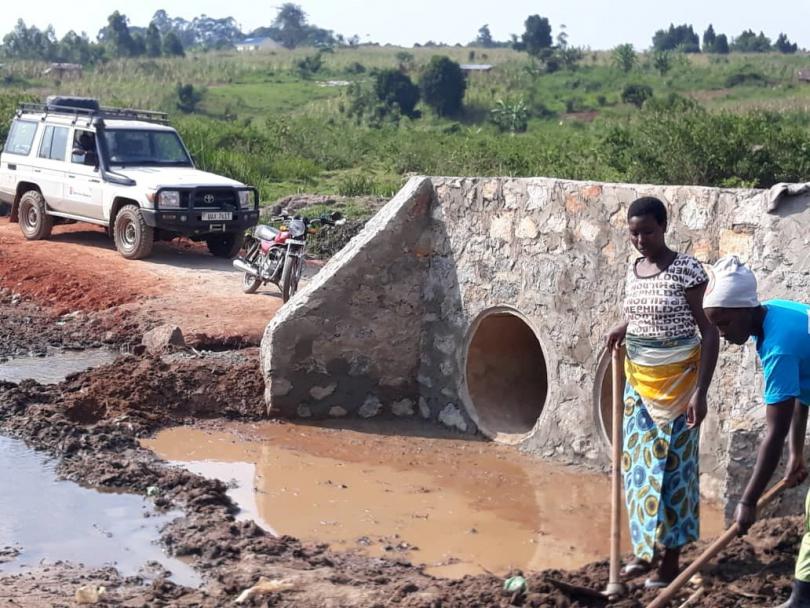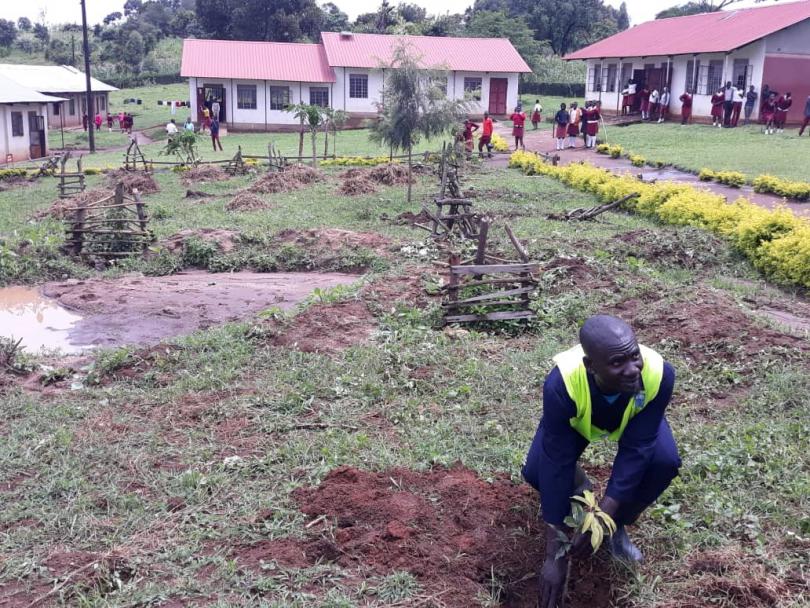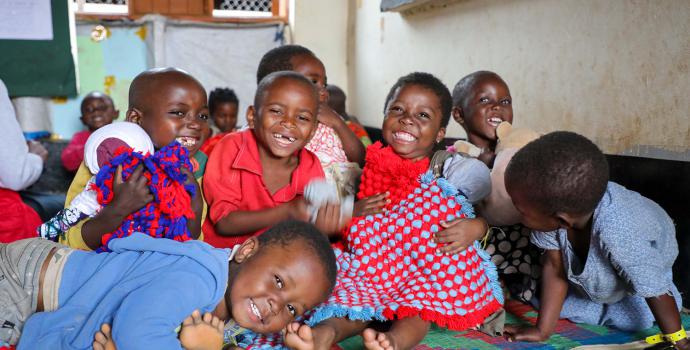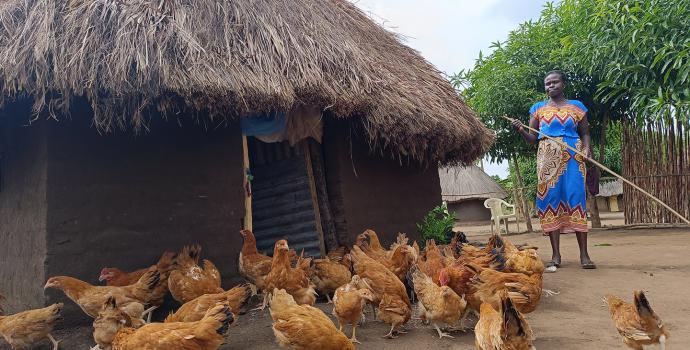Cash for work helps vulnerable refugees support their children
Odes Arinanye was living in abject poverty with the four children under her care in Kyaka II refugee settlement in western Uganda. The 59-year-old widow did not have a proper lighting system in her home, or a mobile phone to communicate with her elder sons who live away. She recalls how her neighbour often fleeced her each time she requested to use his mobile phone to make a call.
“Every time I wanted to communicate with my sons, my neighbour would ask me to buy airtime. But he would later say all of it had been used up by the computer and I would leave without making the call.”
When darkness set in, Arinanye and her children ate their supper using light from the kitchen fire. She used the same light to make the children’s beds at night in their two-roomed mud house.
Her poor living condition is not unique to her. Esteri Kamana, a 50-year-old Congolese refugee, lives with six children – four biological children and two she has taken in as foster children.
Kamana exchanged her labour for food and sometimes for meagre pay from the host community as a way of taking care of her family. “I would work for 5,000 shillings a day (about $1.36). I would have one meal a day or sometimes go hungry,” she says. She could barely afford soap, salt, or clothes for her children. The children were sent home from school as she could not afford to pay the school fees.
With funding from the United Nations Development Programme (UNDP), Save the Children has been providing livelihoods support to refugees and the local host community in Kyaka II settlement in western Uganda, where more than 118,000 refugees now live. Most have fled the ongoing war in eastern DR Congo, and most do not have access to paid employment.
The project creates jobs so that vulnerable refugees get a cash income in return for working on local priorities such as improving roads, planting trees, energy saving, waste management and agriculture. Each participant receives 960,000 shillings (about $260) to spend on what they need.
The project has changed the fortunes of women like Arinanye and Kamana.

Above: Roads often flood and are in poor condition. The project employed labourers to rebuild and improve this road, giving them a vital income and providing important infrastructure to the wider community.
Arinanye became part of a farming group planting cabbage and eggplants. With her first instalment of 220,000 shillings she bought a solar lighting system for the home and a mobile phone. She also completed construction of a latrine which had stalled because of lack of funds.
“Installing a solar system at my house is my most significant change. Whenever darkness came, my mind would start thinking about how to get light,” says a happy Arinanye.
For Kamana, the first 220,000 shillings she earned from her first job helped her buy a sheep, soap, salt, food and clothes for the children, and pay school fees so they could return to class. In addition, she bought a hoe which she uses to till her garden.
She says the sheep will help her long-term. “In future when my sheep produces and they accumulate, I will have the capacity to solve my immediate problems such as healthcare, school fees for the children and food when I sell one.”
Bright James, a 41-year-old Ugandan, has also benefited from the project. He had to sleep outside with his children as the roof of their home was unsafe. With the money he earned, he has been able to repair the roof. “Now my children have somewhere to sleep!” he says.
Between August and November 2019, at least 330 households (70% refugees and 30% host communities) have received cash transfers through the project. Individuals have also received training on financial literacy and/or business development so they can set up small businesses.
Below: The project has paid groups to plant more than 3,000 tree seedlings - mostly mangoes and oranges - in schools in Kyaka refugee settlement, to improve the local environment and sustainable produce





